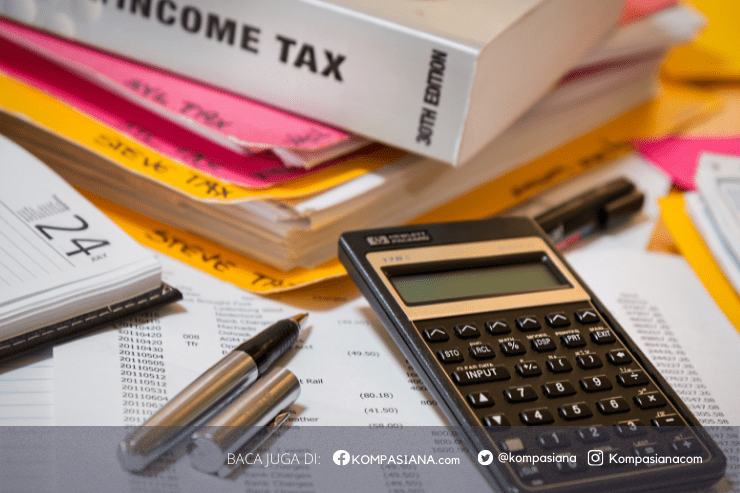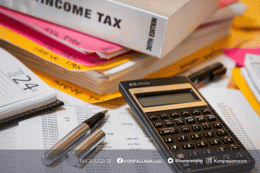As many as 270 million Indonesians, around 241.7 million of whom are Muslims. Thus, making Indonesia one of the countries with the largest Muslim population in the world. This adds a great opportunity for the Islamic economy to increase. One of them is focusing on the halal industry.
Recently, the halal industry has been developing massively and rapidly, halal industry is also considered to be able to reach many sectors, as part of global participation for the future, the role of the halal industry can also attract several countries with the majority of the population is non-Muslim, such as South Korea, Japan, Thailand, and Australia by becoming a producer of the global halal industry. Currently, Indonesia, whose population is dominated by Islam, is one of the target markets for the halal industry.
This potential should be utilized by Indonesia, in building a sustainable Islamic economic development framework. Which is not only a global target market, but also a major player. In addition, the halal industry trend is one of the good prospects in the future and will continue to grow.
According to the Global Islamic Report (2019), around 1.8 billion Muslims are consumers of the halal industry, and this number is expected to continue to increase with total funds spent by halal industry consumers of USD 3.2 trillion by 2024. Indonesia certainly has a great opportunity with a total Moeslim population that accounts for around 12.7% of the world's population in 2020, and as many as 229 million Moeslims living in Indonesia.
On the other hand, the halal industry is also a competitive sector. It is one of the Islamic economic master plans designed and published by the Financial Services Authority, in addition to the Islamic finance sector which has a strategic role in increasing economic growth. This is because the halal industry has contributed USD 3.8 billion to Indonesia's Gross Domestic Product (GDP) every year. If optimized further, the halal industry can increase exports and foreign exchange reserves.
However, Indonesia has not been ranked in the world's top 10 in the category of halal food producers, halal awareness from the public must be increased, and accelerated development of the halal industry in Indonesia as a supplier and role model of halal commodities globally. The development of the halal industry is considered important for the development of Islamic economics. However, the theory of the halal industry is still considered unable to make a significant contribution to the literature on industrial economics and Islamic economics. However, empirically it has been proven that its development can influence the economy's structure, especially in Indonesia.
Becoming a Major Actor in the Global Halal Industry Flow
Public demand for halal products is increasing along with the increasing awareness of the importance of the "halal" element for Muslims. Great opportunities for the halal industry can be developed to strengthen the Islamic economy. Apart from the Islamic financial or banking sector, through the halal industry, Indonesia should not only be a global market target. However, it is also able to become a key player in the global halal industry in a competitive sector.
So, what must be done is to identify challenges and opportunities for the development of the halal industry in Indonesia, analyze the factors that influence the strengthening of the halal industry, which has an impact on strengthening the Islamic economy holistically, and of course the policies implemented by the government and stakeholders in the development of a sustainable halal industry.
Looking at some of the existing problems, are based on a statement from the Central Statistics Agency (BPS) which explains that only around 10% or 1.6 million MSMEs have halal certification. This is related to technical regulations, as well as the problem of halal certification in Indonesia which has not been comprehensively recognized on a global scale.
Not only that, the focus of investors tends to be on the halal industry sector. There are still many other halal sectors that have potential and can be developed, such as cosmetics, tourism, fashion, and even banking as well as the existence of export barriers for MSMEs, which are still struggling to adjust to global halal lifestyle trends.
In line with this, Deputy for Sharia Banking, Sharia Economic Agency, Kadin Indonesia, Banjaran Surya Indrastomo, said that Indonesia should be able to focus more on halal products than it currently has. One of them is by continuing to increase the stretch of domestic industrialization.
Therefore, the halal industry facilitation and development program to encourage the development of the halal ecosystem, and strengthen the competitiveness of national products is considered important, considering that Indonesia has excellent prospects in the halal industry. Starting from education and training, increasing promotion and marketing, developing other halal sectors, collaborating with other countries, and even innovating products and services.
Implementation of the Sharia Economic Masterplan
Currently, to achieve a sustainable transformation of the Indonesian economy, the halal industry is considered the answer to developing a new perspective for industrialization in Indonesia in a visionary manner. So through this, related to Indonesia's efforts through various regulations, and planning and execution in the future, the Indonesian Halal Industry Master Plan (MPIHI) is needed. MPIHI 2023-2029 carries the slogan "Halal Industry for Sustainable Economy", by adjusting to global circumstances through participation, and a better direction of change in the Indonesian economy.
The halal industry development strategy stated in the 2019-2024 Indonesian Sharia Economic and Financial Masterplan (MEKSI) aims to encourage increased added value, employment, investment in the real sector, and industrialization by making Indonesia the center of the world's halal industry. So, the link between the achievement target and the main strategy, main program, and indicators must be synchronized, namely through increasing productivity and competitiveness, which can be done through four core programs, namely strengthening the halal value chain. Development of competent and competitive Human Resources (HR). Strengthening halal industry players, including Micro, Small, and Medium Enterprises (MSMEs) and Islamic boarding schools, and supporting the growth of halal businesses based on innovation and technology. It increased research and innovation. Through this, it will provide a share of the GDP of the halal industry, as well as labor absorption.
Furthermore, in strengthening finance and infrastructure, there are three main programs, namely providing inclusive Islamic financial support, strengthening halal industry infrastructure, and compiling halal industry indicators and databases by national data authorities, which impact halal product investment and Islamic finance share.
The strengthening of halal brands and awareness consists of two core programs, namely increasing social preferences and halal lifestyles through promotion and education, building international economic diplomacy relations in the halal industry which affects the proportion and ratio of MSMEs, as well as the halal industry literacy index and increasing Indonesia's ranking in the world halal industry.
Finally, in the implementation and strengthening of policies and regulations, there are two core programs, namely strengthening the halal industry through policies and regulations that provide benefits, certainty, and justice. As well as implementing a halal product assurance system (certification and product traceability). This can influence the growth of halal product exports, and the portion of the domestic content level.
We are seeing the various perspectives and advantages that Indonesia has in running the halal industry, especially in competitive sectors such as food, beverages, cosmetics, lifestyle, and so on. As well as being supported by the largest Muslim population in the world and starting to be developed through the national Sharia economic masterplan, creating new potential for Indonesia in developing the halal industry to strengthen the Islamic economy, which in the future will be able to become a role model and major player in the global halal industry.
So, in terms of increasing this potential, it must also be supported from the internal and external sides. From the internal side, the government provides education, especially to Micro, Small, and Medium Enterprises (MSMEs) actors in obtaining halal certification, namely 57.83 million actors. From the external side, namely the socialization of halal awareness to the public, understanding of halal products and guarantees known to the public, and the ratification of the Halal Product Guarantee Act Number 33 of 2014. In the future, many parties will realize the important role of the halal industry in efforts to improve the economy sustainably.
Baca konten-konten menarik Kompasiana langsung dari smartphone kamu. Follow channel WhatsApp Kompasiana sekarang di sini: https://whatsapp.com/channel/0029VaYjYaL4Spk7WflFYJ2H







